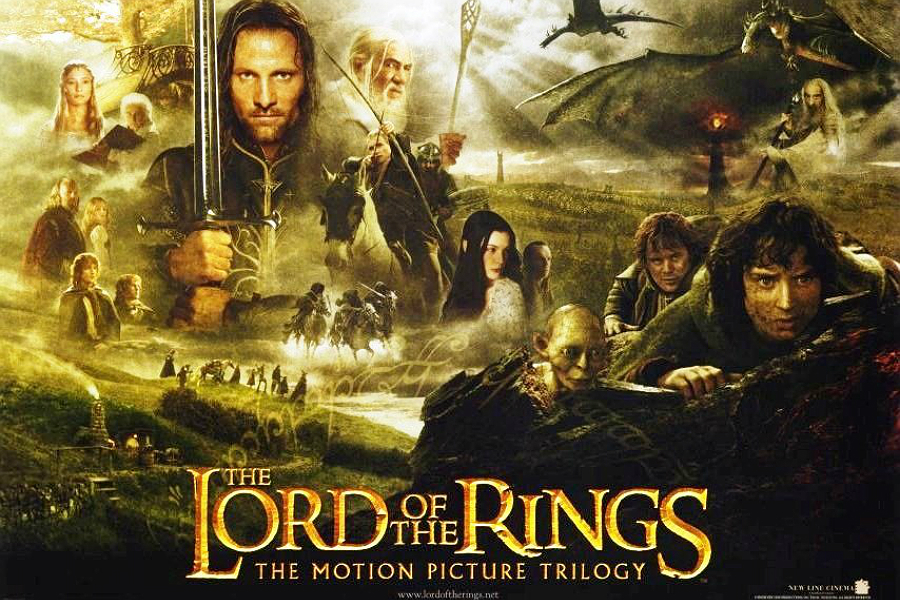Lord of The Rings – Previewed

With the Lord of The Rings trilogy showing in full at FACT next month, Nik Glover takes a look at the fantasy genre’s on screen history…
Six hundred and one minutes. This is how long it took Peter Jackson to tell the most successful slice of Fantasy folklore since Star Wars, and on 9th December, Picturehouse at Fact are showing the three original, theatrical versions back-to-back.
The Lord of the Rings Trilogy works perfectly as a total viewing experience because of the unique nature of its production; all three films were shot contiguously, by a director of singular vision and with a large, committed ensemble cast, giving it a seamlessness rarely seen in movie series. Think of Star Wars, or the Matrix; a hugely successful first film tends to throw off-kilter the sequels, as budgets, egos and ambitions expand. George Lucas will most likely be doing digital airbrushing on Episode IV: A New Hope until he finally shuffles off this mortal coil; Peter Jackson was given, and grasped, the chance to do it right at the first attempt.
Rings purists will no doubt question why Fact aren’t presenting the ‘definitive’ extended versions, pushing the running time somewhere towards the 700 minutes mark, and at the same time possibly encroaching onto the Mayan Apocalypse on the 21stDecember. It does seem slightly counter-intuitive that, if you are going to show the whole ‘Rings cycle’, you may as well plump for the one in which Gimli, Aragorn and Legolas spend at least an extra 15 minutes per film legging it over mountain tops and hurdling mountain streams. Even at reduced length, it’s a multiple nerdgasm for those waiting for the next Jackson/Tolkien trilogy to begin. It’s also a rare age for fantasy geeks; one in which even the purest form of the genre can draw millions to the multiplex.
Fantasy film has suffered particularly keenly from a sense of under-achievement since the birth of cinema. Arguably the genre was the first of all – narrative cinema’s birth in the late 19th century followed on from the magic shows and sleight-of-hand touring theatres that first made objects magically appear and disappear with simple editing techniques. Georges Melies, Jean Cocteau and Fritz Lang all contributed what are arguably early classics of the genre, although exactly what constitutes a ‘fantasy’ film is notoriously hard to pin down. Whereas modern fantasy fiction is most usually used to tell tales about kings, goblins and magical items, the invention of Science Fiction has, for many, split the genre.
It’s hard to deny that the Star Wars sixtology falls under the heading of fantasy – replace orks with imperial storm troopers and Gandalf with Obi-Wan Kenobi and they’re practically the same film [1], albeit with tonal differences – and it’s equally difficult to find any other significant post-Lucas fantasy epics which could be said to have transcended the genre. The John Milius-directed Conan the Barbarian (1982) spawned a sequel and contemporary re-imagining, but is more notable for the star it launched than any impact it had on the genre. Krull and Excalibur were big-budget sword-and-sorcery efforts, while Flash Gordon and Masters of the Universe took already well-salted products and made ridiculously literal hay with their extravagances.
The problem was, when fantasy films blew out, they tended to cause significant collateral damage. Titan A.E. and Cutthroat Island both killed studios, although capturing anything vaguely fantastical under the fantasy banner is unfair; large scale, spectacle-driven movies don’t live or die on the strength of their special effects – a combination of unsteady leadership, marketing and scripting all play a far more significant role. Return to most pre-Rings fantasy films and they become more and more obviously a product of their time and technological restrictions.
Periodically in the last three decades of the 20th Century, fantasy would lie low, waiting for another brave soul to pick up the torch. It has perhaps suffered worst because of its ambitions – for every stellar hit like The Matrix there have been five or ten weaker, hammier versions (David Cronenberg’s eXiSTeNz is a notable success which sadly wipes itself out after too many twists). Even The Matrix proved impossible to comfortably sequel-ize, turning an interesting, personal narrative into a quasi-evangelical techno wankfest.
But I digress. The next few years will be crucial for the continuing story of fantasy film. Disney’s crash and burn over John Carter has apparently not put them off the genre, with their purchase of the Star Wars franchise promising a new series of films/merchandising opportunities. Harry Potter and Twilight both carry aspects of traditional fantasy but with more teen-facing narrative drivers, while Marvel is lining up oodles of fantasy-tinged superhero sequels, as well as Guardians of the Galaxy, the closest to a space opera that it has in its vast stable. However you class ‘true’ fantasy, it doesn’t look like the genre will be disappearing again any time soon.
Nik Glover
The Lord of The Rings Trilogy screens 12pm @ FACT Sunday 9th December





